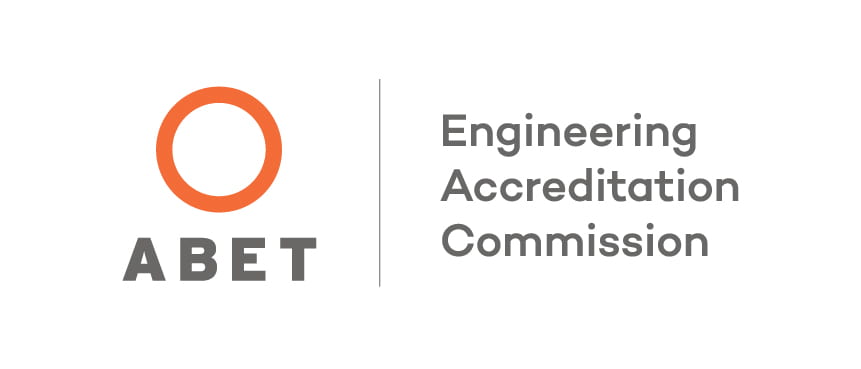Our Electrical Engineering B.S. program is accredited by the Engineering Accreditation Commission of ABET, abet.org. Learn why ABET Accreditation matters.

Program Educational Objectives
Program Educational Objectives (PEOs) are based on the needs the Electrical Engineering program constituents. They describe what graduates are expected to attain within a few years after graduation.
The PEOs for the Electrical Engineering program at UCSC are as follows:
- Advanced Learning and Professional Development: Achieve a high quality, professional approach to engineering through a desire for advanced education, lifelong learning and participation in the professional engineering community.
- Adaptation to Technological Change: Enjoy a successful professional career in a world with rapid technological change by having a sound foundation in the fundamental electrical engineering theory, design and basic science upon which future technology will be based.
- Skills for Initial and Continued Employment Success: Demonstrate job-relevant electrical engineering skills through theoretical and practical competence in hardware and information oriented electrical engineering, as well as independence in thought and action.
- Leadership, Teamwork and Entrepreneurial Skills: Achieve a high level of individual creativity for personal achievement as well as the interpersonal, communications and responsibility skills for creating an effective team project environment, including an ability to apply engineering competence in both research and product oriented settings.
- Ethics and Societal Issues: Practice a high standard of professional ethics and have a positive impact on the social and environmental aspects of engineering design and implementation.
Student Outcomes
Upon graduation, students completing the Electrical Engineering B.S. program shall have an ability to:
- identify, formulate, and solve complex engineering problems by applying principles of engineering, science, and mathematics;
- apply engineering design to produce solutions that meet specified needs with consideration of public health, safety, and welfare, as well as global, cultural, social, environmental, and economic factors;
- communicate effectively with a range of audiences;
- recognize ethical and professional responsibilities in engineering situations and make informed judgments, which must consider the impact of engineering solutions in global, economic, environmental, and societal contexts;
- function effectively on a team whose members together provide leadership, create a collaborative and inclusive environment, establish goals, plan tasks, and meet objectives;
- develop and conduct appropriate experimentation, analyze and interpret data, and use engineering judgment to draw conclusions; and
- acquire and apply new knowledge as needed, using appropriate learning strategies.
Program Enrollments
| Year | 2008-2009 | 2009-2010 | 2010-2011 | 2011-2012 | 2012-2013 | 2013-2014 | 2014-2015 | 2015-2016 | 2016-2017 | 2017-2018 | 2018-2019 | 2019-2020 |
|---|---|---|---|---|---|---|---|---|---|---|---|---|
| Proposed Electrical Engineering | 87.3 | 93.3 | 90.3 | 83.0 | 73.3 | 91.7 | 162.3 | 164.7 | 173.3 | 164.3 | 131.3 | 124.7 |
| Declared Electrical Engineering | 57.7 | 72.7 | 96.0 | 115.0 | 140.7 | 124.7 | 98.3 | 127.0 | 143.7 | 134.7 | 131.7 | 143.0 |
| Totals | 145.0 | 166.0 | 186.3 | 198.0 | 214.0 | 216.3 | 260.7 | 291.7 | 317.0 | 299.0 | 263.0 | 267.7 |
Degrees Awarded
| Year | 2007-2008 | 2008-2009 | 2009-2010 | 2010-2011 | 2011-2012 | 2012-2013 | 2013-2014 | 2014-2015 | 2015-2016 | 2016-2017 | 2017-2018 | 2018-2019 | 2019-2020 |
|---|---|---|---|---|---|---|---|---|---|---|---|---|---|
| Electrical Engineering | 22 | 23 | 24 | 20 | 30 | 40 | 33 | 31 | 34 | 45 | 63 | 40 | 58 |
